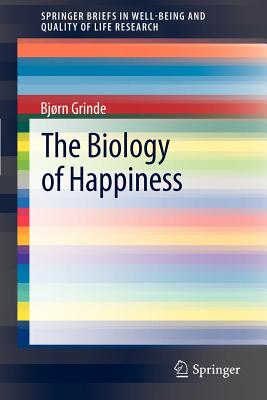Biology of Happiness (2012)
$62.99
Description
The briefs presents a model for happiness based on current knowledge in evolutionary biology and neurobiology. Briefly, the primary purpose of nervous systems is to direct an animal toward behaviour relevant for survival and procreation. In primitive animals actions are based on reflexes, while in humans the modules directing behaviour engage positive and negative affect (good and bad feelings), and they are swayed by cognitive processes. The reason why evolution opted for this strategy was the improved flexibility in response – i.e., we learn from previous experiences. The human capacity for happiness is an accidental consequence.
An array of brain modules has evolved to care for various pursuits, but recent studies suggest that they converge on shared neural circuits designed to generate positive and negative mood. Happiness can be construed as the net output of the relevant modules. The briefs suggests a strategy for how to avoid having negative feelings (such as anxiety, depression and chronic pain) dominate the mind, and how to exercise positive feelings. In short, the book offers both a deeper understanding of what happiness is about, and a framework for improving well-being.
An array of brain modules has evolved to care for various pursuits, but recent studies suggest that they converge on shared neural circuits designed to generate positive and negative mood. Happiness can be construed as the net output of the relevant modules. The book suggests a strategy for how to avoid having negative feelings (such as anxiety, depression and chronic pain) dominate the mind, and how to exercise positive feelings. In short, the book offers both a deeper understanding of what happiness is about, and a framework for improving well-being.
Author: Grinde, Bjorn
Topic: Psychology
Media: Book
ISBN: 9400743920
Language: English
Pages: 109
Additional information
| Weight | 0.39 lbs |
|---|---|
| Dimensions | 9.21 × 6.14 × 0.25 in |















Reviews
There are no reviews yet.